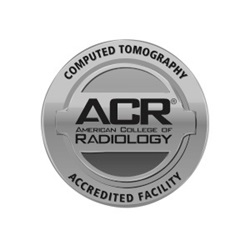Specialty Services
Diagnostic Studies

Our on-site Diagnostic Studies centers are available for your convenience, with an excellent team of board-certified radiologists that provides patients with quality medical care in the field of digestive health. We are committed to rapid communication with you and your referring physician about the precise results of your diagnostic imaging studies.
Diagnostic Studies Services Overview
Ultrasounds an abdominal ultrasound is a medical imaging technique that utilizes sound waves to generate images of abdominal organs like the liver, gallbladder, kidneys, and pancreas. The procedure typically lasts around 30 minutes and offers advantages such as non-invasiveness, real-time imaging, and the assessment of organ structure and function without radiation. It's frequently employed for diagnosing and tracking various abdominal conditions.
CT scan, short for computed tomography, is a medical imaging technique that utilizes x-rays to produce detailed cross-sectional images of the body. It's valuable for diagnosing a range of conditions like tumors, injuries, or infections. Typically lasting only a few minutes, CT scans are quick diagnostic tools. Their advantages include offering detailed information about internal structures, which assists in precise diagnosis and treatment planning.
FibroScan is a non-invasive medical procedure employed to evaluate liver stiffness, often linked to liver fibrosis. Typically, it lasts around 10 to 20 minutes. It gauges the velocity of a shear wave passing through the liver tissue. Its advantages include being non-invasive and offering rapid results compared to conventional approaches. The test uses a technology called Vibration Controlled Transient Elastography (VCTE™).
PillCam is a compact, ingestible capsule equipped with a miniature camera that records images during its journey through the digestive system. Primarily for diagnostics, it offers a non-intrusive method to inspect the small intestine. Its advantages include circumventing conventional invasive procedures and acquiring detailed visuals of challenging-to-reach regions. Typically, the procedure spans approximately 8 hours, allowing the capsule to traverse the entire digestive tract.
Bone Density Exam, or Dual-Energy X-ray Absorptiometry (DEXA) scan, is a procedure that measures bone mineral density. It typically takes about 10 to 30 minutes and helps evaluate bone health and fracture risk, particularly in conditions like osteoporosis. Benefits include early detection of bone loss and guidance for preventive measures.
Manometry is a test that measures the strength and function of the esophagus to diagnose conditions that cause heartburn, pain, or dysphagia.
Bravo™ Reflux Testing System is a minimally invasive test for the evaluation of heartburn or related symptoms.
CapsoCam is a type of capsule endoscopy that uses a 360° panoramic camera to capture images as it travels through the esophagus and small intestine.
SmartPill is an FDA approved ingestible medical device that your doctor can use to evaluate the motility and pH of the gastrointestinal tract.